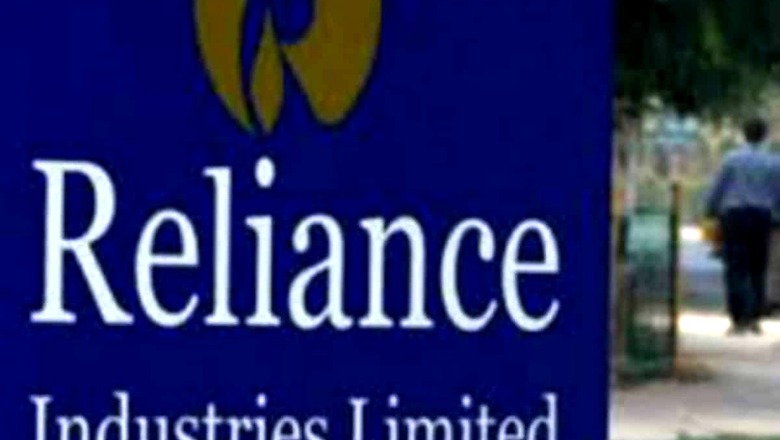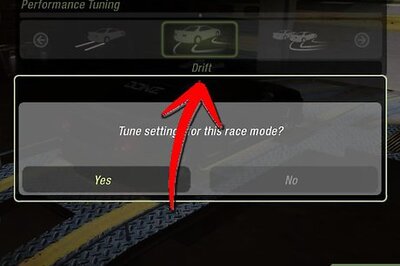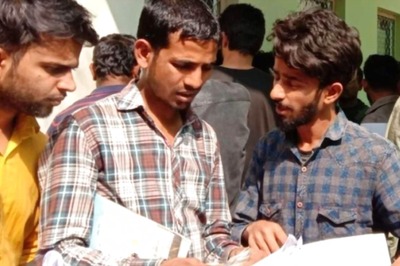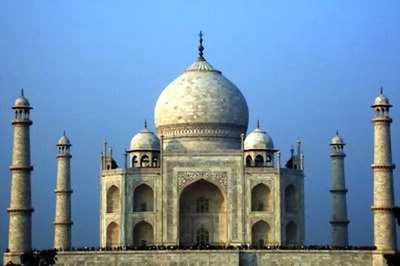
views
Reliance Jio told the Supreme Court on Tuesday that it has already paid Rs 195 crore in AGR-related dues which included spectrum sharing charge of Reliance Communications (RCom). It said there is no question of one operator paying the Adjusted Gross Revenue (AGR) related dues of another firm, as suggested by the apex court earlier, and it has cleared all its dues.
The billionaire Mukesh Ambani-led Jio told the apex court however that if still any amount remains pending from sharing of spectrum of RCom, it is willing to pay that.
A bench of Justices Arun Mishra, S Abdul Nazeer and MR Shah which would continue hearing in the matter on Wednesday, was told by senior advocate Harish Salve, appearing for Jio and Committee of Creditors (CoC) of RCom, that it would be premature to decide if spectrum can be sold or not under Insolvency and Bankruptcy Code (IBC).
He said that only when the RCom resolution applicant moves the Department of Telecom (DoT) for spectrum sale, the issue will be decided. The bench observed that there are huge AGR dues payable and it cannot let it go.
"We had directed payment of AGR dues within a certain period but the Government is seeking 20 years' time, what will happen if companies go into insolvency by then. We are fully conscious of the scope of proceedings, we will not exceed our power," it said. The top court said it would decide all the legal issues involved in the matter and would do it conclusively.
Salve argued that the insolvency proceedings against RCom were triggered by Ericsson, which could not be withdrawn even after the Swedish telecom equipment maker was paid its dues. He said the CoC has accepted a resolution plan which envisages auction of RCom spectrum subject to the DoT nod.
Salve said that UV Asset Reconstruction Company (UVARC) is the top bidder for RCom, which was earlier led by Anil Ambani, and it is not fronting for anyone. He said Jio is not interested in bidding for RCom and the UVARC's equity comes from public sector banks (PSBs) and insurance companies.
He said spectrum sharing between various operators was done after DoT allowed it under the 2015 guidelines, and Jio was looking to buy RCom's spectrum prior to the insolvency proceedings subject to DoT approving the spectrum sale.
"There is no question of one operator paying the AGR dues of another operator. Jio has already paid its relevant dues," he said, adding that additional customer and additional revenues on account of shared spectrum was reflected as a part of AGR.
The bench asked Salve that does this amount include spectrum usage of RCom's spectrum to which he replied that the entire thing that was payable by Jio was Rs 195 crore. He said that under the tripartite licence agreement, the government has recognised that the spectrum can be used as security by telecom companies to raise funds from the banks.
He said PSBs would only provide funds if security is allowed to be monetised. The bench again reiterated its earlier question as to how RCom had earlier claimed to have assets of over Rs 35,000 crore, whereas now the fair value is just little over Rs 10,000 crore.
It asked Salve how RCom continued under IBC, even after payment of Ericsson dues and even there was no separate move by the company to submit itself under insolvency proceedings.
Salve replied that once the RCom's insolvency proceedings were initiated, it had to continue even after payment of Ericsson dues and the only way to exit it was payment of 90 per cent of dues claimed by the creditors, which was not possible to do.
He said the firm has never claimed spectrum as an asset but has only claimed the right to use it. The hearing remained inconclusive and would continue on Wednesday.
On Tuesday, the top court had asked Centre to clarify its stand on why Jio, which is earning revenue by sharing RCom's 800 MHz spectrum, be not asked to pay the AGR related dues to the government.
The Centre had told the top court there was a difference of opinion between two of its ministers (DOT and Ministry of Corporate Affairs) on the issue of sale of spectrum during insolvency proceedings.
It had said that the DoT has constantly maintained a stand that spectrum cannot be sold during insolvency proceedings while the Ministry of Corporate Affairs (MCA) had sought to allow spectrum sale for maximization of value.
On August 14, the top court had sought the details of spectrum sharing pact between RCom and Jio and said as to why the company using the spectrum of the other firm cannot be asked to pay the AGR related dues to the government.
The top court had asked the counsels for Reliance Jio and RCom to place their spectrum sharing agreements on record. Earlier, the top court had made it clear it will not hear "even for a second" the arguments on reassessment or re-calculation of the AGR related dues of telecom companies which run into about Rs 1.6 lakh crore.
The apex court had in October 2019 delivered the verdict on the AGR issue for calculating government dues of telecom companies such as licence fee and spectrum usage charges.
After the top court had rejected pleas by Vodafone Idea, Bharti Airtel and Tata Teleservices seeking review of the judgement which widened the definition of AGR by including non-telecom revenues, the DoT had in March moved a plea seeking staggered payment over 20 years.




















Comments
0 comment